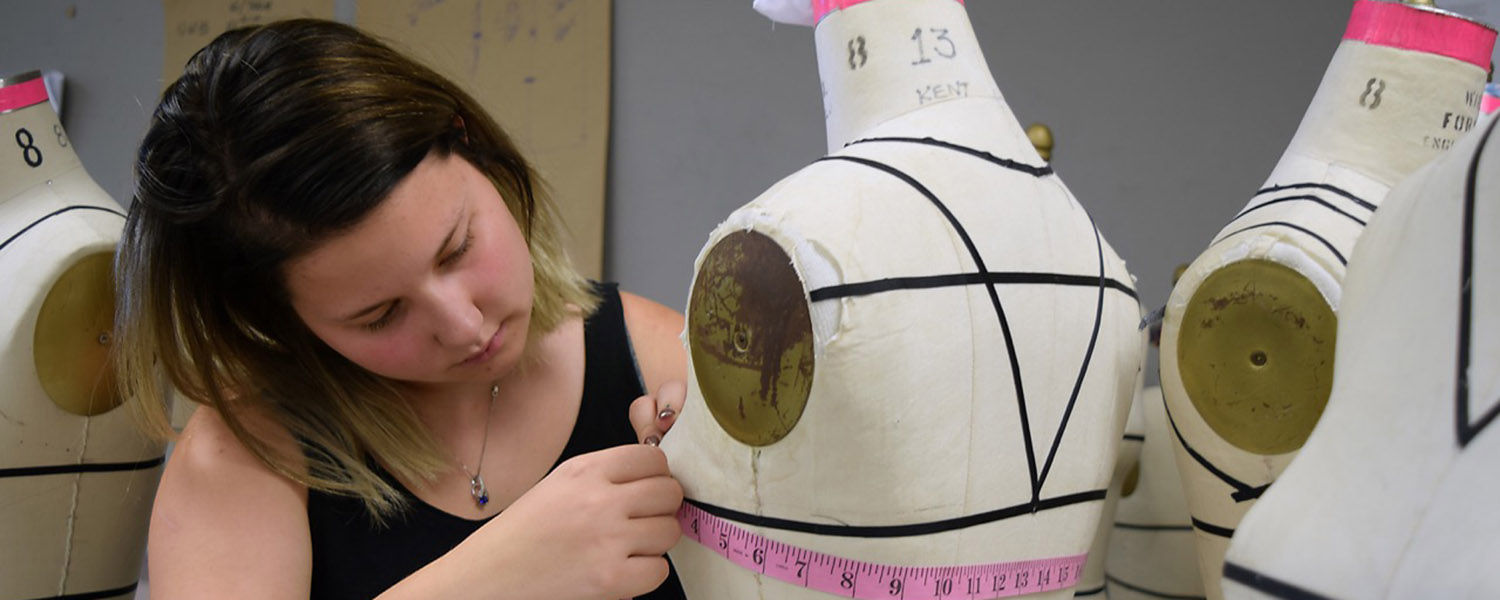These days, consumers can buy the latest clothing trends quickly and inexpensively. Critics, however, maintain that this βfast fashionβ can be detrimental to the environment.
According to the Environmental Protection Agency (EPA), 84 percent of unwanted clothes in the United States in 2012 went into either a landfill or an incinerator. The EPA also says the materials that the fast-fashion companies are noncompostable, cause the greenhouse gas methane and contribute to climate change.
ΜμΜμ³ΤΉΟ junior fashion design and business student Madeline Mehler created her new clothing business, Sultrie, with the goal of helping to combat this issue and add to what the industry refers to as βslow fashion,β a more sustainable, lower carbon-footprint approach to making clothes.
Mehler rediscovered the sustainability issue within the fashion industry thanks to William Perrine, ΜμΜμ³ΤΉΟ State fashion merchandising senior lecturer, during a summer 2016 for-credit trip to Germany.
βThe sustainability issues in fashion have always been in the back of my mind,β Mehler says. βBut Professor Perrineβs presentation about sustainability made me realize all that is happening in the fashion industry, such as outsourcing jobs to different countries, workers dying creating clothes and Americans buying clothes those workers made, for really cheap.β
Mehler already had experience owning a business in high school. She and her mom made and sold homemade, organic spa products. Mehler is hoping to continue this entrepreneurial spirit while achieving her business goals as a student fellow at LaunchNET ΜμΜμ³ΤΉΟ State, a place where entrepreneurial like-minded ΜμΜμ³ΤΉΟ State students can work. LaunchNET ΜμΜμ³ΤΉΟ State offers free and confidential, one-on-one advising for students who have a current business or new idea for a business.
Zach Mikrut, program manager at LaunchNET ΜμΜμ³ΤΉΟ State, says Mehler wanted to experiment with pop-up shops. With her craft show experience, it was easy for her to implement this idea to help other students sell their products in a pop-up shop environment.
βMady is a student fellow in the LaunchNET office,β Mikrut says. βShe specifically brought excitement and energy around the idea of creating a pop-up show for our student entrepreneurs.β
Mehler has always wanted to own a clothing company, but she had to overcome the big financial and time investments. In the fast-fashion world, a traditional clothing store buys and stocks inventory of all sizes. But that costs money and space. When Mehler came up with the idea for Sultrie, she decided her clothes would be made to order.
On Sultrieβs website, customers can enter their exact measurements. Her designs are full of thrifted pieces made into new designs, a process usually referred to as upcycling, comfortable materials and βathleisureβ looks. Mehler likes to be comfortable and wants to create looks for college students that are presentable but are also for lounging.
Mehler has created minimalist designs to attract a larger market. She believes that because her pieces are simple, they can be paired with an array of outfits.
βI think that well-made, tailored pieces have a niche market that could do really well online,β Mehler says. βIn places such as Los Angeles or New York City, people know something well-made is worth the money and donβt mind spending it.β
Mehler wants people to become more aware of what they are buying. Buying from local boutiques, online stores such as Etsy or designers like Mehler can have an enormous positive impact on the fashion industry and the environment.
For more information about Sultrie, contact Mehler at mmehler@kent.edu.

